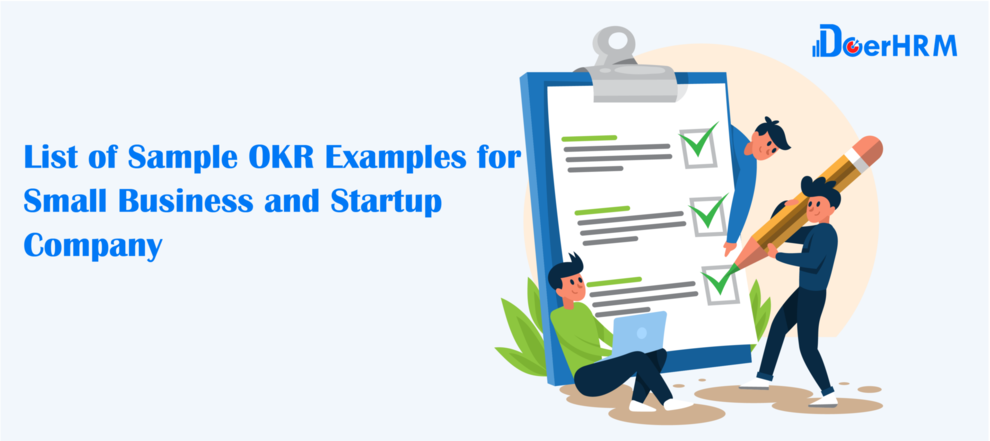Today, OKR has become pivotal for most organisations irrespective of size. Often, when OKR is mentioned, it is usually associated with big companies and businesses. However, OKR is also a necessity to align the efforts of the entire organisation in a small business or startup.
In this article, you will learn the meaning of OKR and various OKR examples for small businesses that can be implemented in your small business.
An Overview of OKR
Objectives and Key Results (OKR) is a methodological approach towards goal setting by identifying objectives that are backed by a list of measurable key results to justify a desirable outcome. Simply put, to create an objective and list quantifiable results for measuring the success of the objective.
Objectives are what SMEs and startups aim to achieve; key results are how to or what must be done to achieve the objectives. Key results are measurable, timed and specific for achieving an objective.
Having understood the concept of OKR, let’s explore some OKR examples for small business:
OKR Examples for Small Business - Marketing
Objective: Improve Company’s SEO
KR1: Improve website loading speed for increased rating score
KR2: Improve the number of new leads generated
KR3: Improve 5 pages per month with on-page optimization
Objective: Improve brand awareness
KR1:Raise brand awareness score from 30% to 45% within the demographic
KR2: Improve page 1 search result from 7 to 15
KR3: Create 4 new blog posts every week optimised with target keywords searches
OKR Examples for Small Business - Sales
Objective: Improve monthly sales revenue
KR1: Increase close rate from 32% to 48%
KR2: Grow average deal subscription to $8000 a month
KR3: Hire more sales reps and increase inbound scheduled calls to 8 per week for each rep
KR4: Host 3 sales training classes
OKR Examples for Small Business - Customer Service
Objective: Provide amazing customer support experience
KR1: Reduce onboarding process time to 2 days
KR2: Manage escalation requests to less than 8%
KR3: Increase customer satisfaction rate to 80%
OKR Examples for Small Business - Human Resources
Objective: Improve employee engagement
KR1: Ensure all employee salaries are competitive in their industry
KR2: Hold an employee competition once a month
Objective: restructure the company’s labour cost
KR1: Layoff 4% of the employees
KR2: Reduce monthly salary cost by 15%
OKR Examples for Small Business - Engineering
Objective: Improve product performance
KR1: Reduce the number of critical and non-critical bugs by 40%
KR2: Test product mockup with 5 QA manual testers
Objective: Launch a product’s beta
KR1: Create 10 beta case studies
KR2: Log no critical bug in the beta
OKR Examples for Small Business - Design
Objective: Present the company as the best place to work
KR1: Win four design competition
KR2: Receive 50 new applications per month
KR3: Improve visual aspect of content marketing
Conclusion
There are many OKR examples for small businesses and startups, depending on the departments and structure of the company. The goal of OKR is to harness the team by breaking down the vision of the company into team-specific objectives that can be measured by achievable and measurable key results.
You can use this article as a guide when structuring your OKR by picking from the various OKR examples for small businesses listed above.
To get one of the best OKR tools that can help your team to improve performance every quarter, book a free demo with our performance experts!






